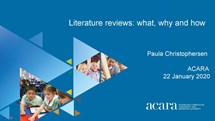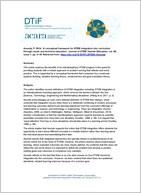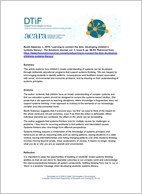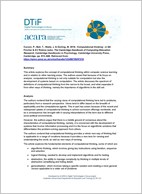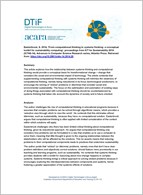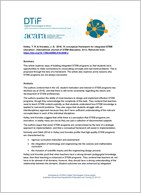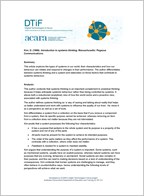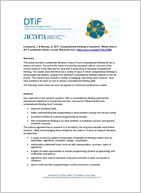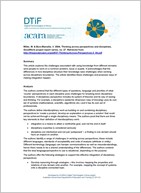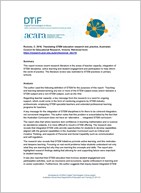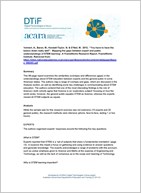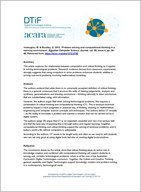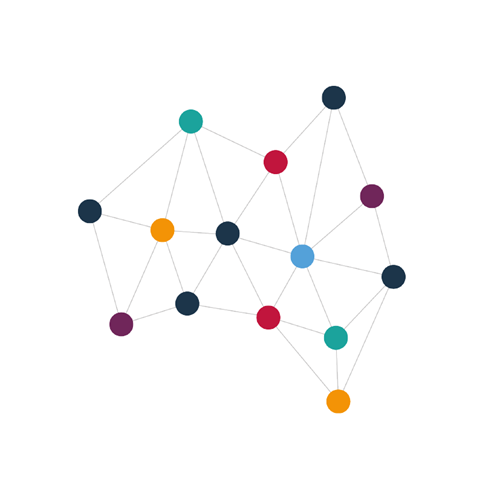Literature reviews
The following PowerPoint tutorial and literature reviews are self-paced learning for educators. We recommend viewing the PowerPoint to understand how to write a literature review and then reading the literature reviews on Digital Technologies to gain a deeper understanding of aspects of the curriculum.
Literature reviews
|
V9.0 Digital Technologies key changes Description: In the first video, our Curriculum specialist, Technologies and the curriculum writers take you through the key changes to the Digital Technologies curriculum. Primary teachers will notice a new Foundation level with essential content for the first year of schooling and what is needed to move through to the next band of Year 1 and 2. Our presenters also explain how the revised content descriptions have reduced duplications and made it much clearer for teachers about what needs to be taught. Keywords: V9.0 Digital Technologies, curriculum, planning Audience: suitable for primary and secondary teachers Years F-10 |
|
|
V9.0 Digital Technologies Privacy and security Description: This video explores some of the main points for the planning and teaching of the new Privacy and security sub-strand. Keywords: V9.0 Digital Technologies, curriculum, planning, cyber security, privacy Audience: suitable for primary and secondary teachers Years F-10 |
|
|
V9.0 Digital Technologies Collaborating and managing Description: This video looks at where key changes have occurred in this sub-strand and what teachers should be looking for when planning for this content. Keywords: V9.0 Digital Technologies, curriculum, planning, online safety, creating, collaborating, managing Audience: suitable for primary and secondary teachers Years F-10 |
|
|
V9.0 Digital Technologies User stories Description: In this video, the presenters look at the new term of user stories now being used to highlight user centric design. Keywords: V9.0 Digital Technologies, curriculum, planning, design, user centric Audience: suitable for primary and secondary teachers Years 3-10 |
|
|
V9.0 Digital Technologies and algorithms Description: In this video, the presenters explain the refinement to the algorithms content. They discuss where duplication has been removed and what teachers still need to remember when planning for this content. Keywords: V9.0 Digital Technologies, curriculum, planning, algorithms Audience: suitable for primary and secondary teachers Years 1-10 |
|
|
V9.0 Digital Technologies, Mathematics and algorithms Description: In this video, the presenters discuss the shared content between Digital Technologies and Mathematics in relation to algorithms. This discussion will help teachers see where integration of the content in these two subjects supports students' understanding of the concept. Keywords: V9.0 Digital Technologies, curriculum, planning, algorithms, mathematics Audience: suitable for primary and secondary teachers Years 1-10
|
|
|
V9.0 Digital Technologies, Mathematics and data Description: In this video, the presenters discuss the shared content between Digital Technologies and Mathematics in relation to data. This discussion will help teachers see where integration of the content in these two subjects supports students' understanding of the concept. Keywords: V9.0 Digital Technologies, curriculum, planning, data, mathematics Audience: suitable for primary and secondary teachers Years F-10 |
